Please support Game Informer. Print magazine subscriptions are less than $2 per issue
Games Where Traditional JRPG Battle Systems Thrive
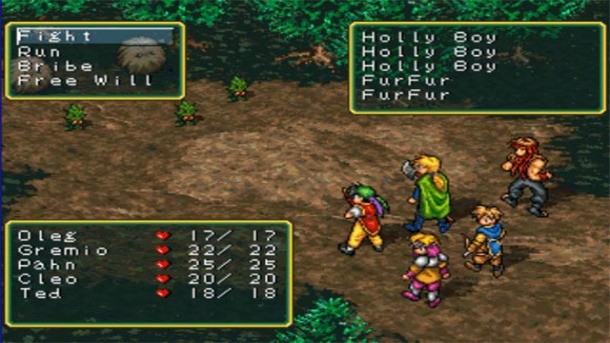
Turn-based battle systems are like cherished childhood toys. We had a blast together in games like Dragon Quest and Phantasy Star, creating unforgettable memories. Then something happened: New toys entered the picture, flashier and more advanced. I couldn’t ignore them even if I tried – the lure of something modern was too great. But the oldest toys are the most comfortable, and that is exactly what draws me to traditional battle systems.
A battle system is such a large element to an RPG. You’re spending a great deal of time with it, so it has to be engaging from the get-go. Unfortunately, the traditional battle system has seen better days; there was a time when it ruled RPGs, but now we’re seeing more RPGs go in an action-oriented direction. The biggest barrier for turn-based gameplay is getting your mind off auto-pilot in battle. Selecting the “attack” command for each character often brings tedium without any fun, tactical decisions. If turn-based systems can add a new layer of strategy, however, they can be engaging.
Let’s explore games that tweak traditional battle systems, what new franchises can learn from them, and discuss why this battle system still works.
Grandia
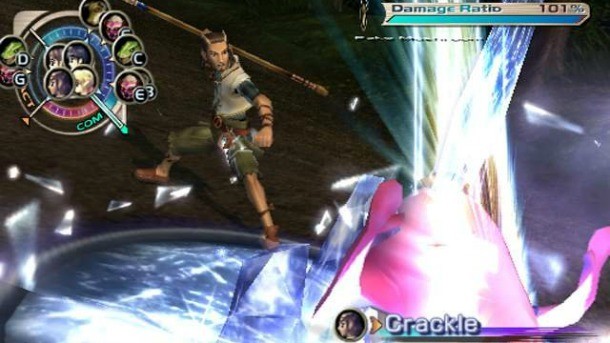
Grandia is an early example of a successful series that wasn’t afraid to shake things up. It succeeded by making the traditional system fun and captivating without even having to do a complete overhaul. Grandia uses many turn-based standbys, but by adding the ability to cancel attacks, it brings a new competitive level to battle. Should you execute a cancel attack while the enemy is about to act, you eliminate their current action and delay their next turn. The shift is simple, but by making its battles more focused on planning and less on simply attacking, Grandia’s system becomes one of the top traditional systems.
Final Fantasy XIII/XIII-2
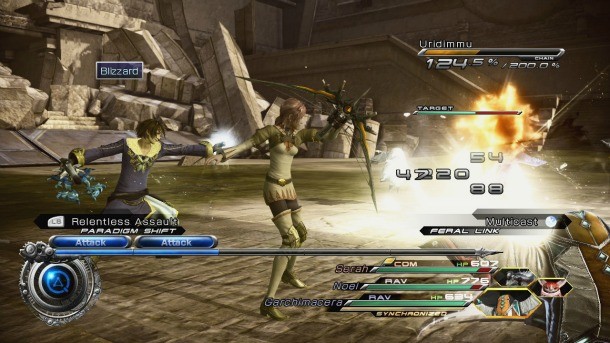
In many iterations, the Active Time Battle gauge was the twist on the traditional battle system for Final Fantasy. The drawback? The dead space after your characters act, waiting for the next time you can issue a command. XIII fixes that problem entirely by letting you coach your team from the sidelines. By creating paradigms based on combining different classes for your characters, you set your strategy before entering battle, but you’re not locked in, as you create multiple paradigms. A simple button press changes the entire dynamic of your team. This fluid and fast shift makes turns go quickly, and while XIII’s system is great, XIII-2 deserves credit for enhancing it so battles play out even faster. Honing in on enemy weakness is also at the core of both systems, but in XIII-2 staggering enemies isn’t such a time sink. The Final Fantasy series refuses to stay stagnant by continuing to refine and adapt its battle system. More franchises should take note, as it stays true to the system’s roots while eliminating outmoded parts.
Radiant Historia
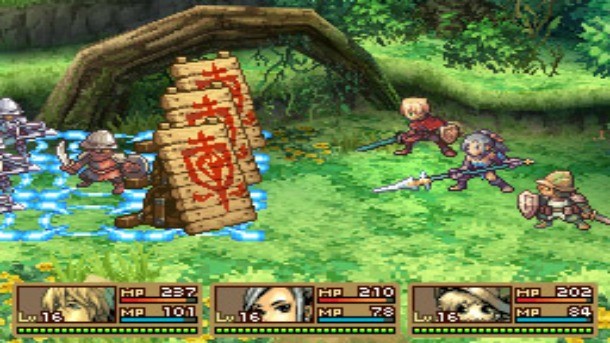
Radiant Historia changes up the standard rules of RPG gameplay with turn manipulation. Enemies stand on a combat grid and your goal is to use abilities to move around their positioning. For instance, stacking enemies on top of each other means you can attack them all at once. This is where turn movement comes into play; your active character can swap his/her turn for any other listed turn. An ally with a heal spell could jump ahead and save the party from death. By giving an enemy your current turn, you string together more attacks for yourself. Turn swapping is tactical, because while you wait for the turn you swapped for, you’re prone to more damage. Radiant Historia proves that having a unique hook and making all its parts complement each other well is all it takes to make a battle system engaging and fresh.
Arc Rise Fantasia
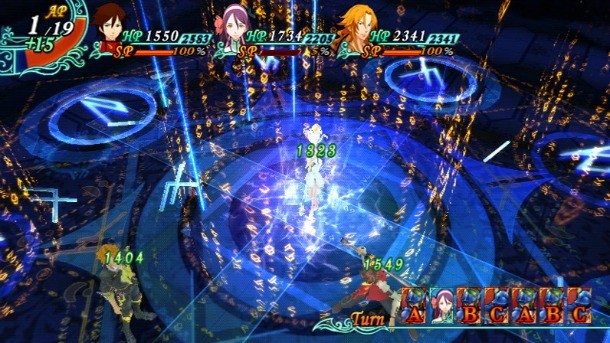
Arc Rise Fantasia makes movement and character placement a crucial part of its battle system, adding just the right amount of depth and strategy. Moving characters to advantageous positions provides both defense and the ability to perform combo attacks, but that is only half the battle. At the start of every turn, you spend Action Points to perform certain actions, but your AP pool is shared amongst the entire party. For extra unpredictability, the game also scatters Raystones on the battlefield. These stones offer perks like strengthened magical attacks, but enemies also receive the same bonuses. Arc Rise Fantasia shows that a turn-based battle system can offer unique decisions with every battle, beyond simple attack spamming. Arc Rise Fantasia makes defensive and offensive skills equally important – a balance that so many traditional battle systems seem to neglect.
Shin Megami Tensei: Nocturne/Digital Devil Saga
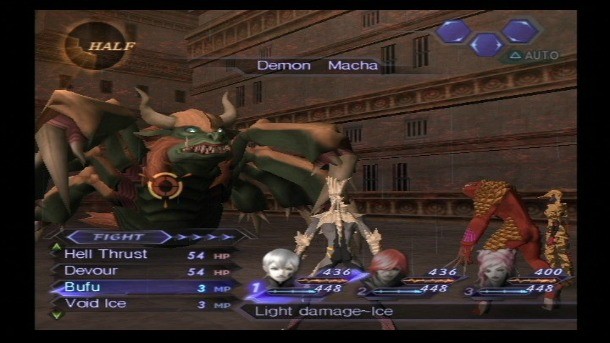
The Press Turn system in Shin Megami Tensei: Nocturne and Digital Devil Saga sets up fair and simple rules for both your party and the enemies. Appropriately, battles are all about how you use your turns. You start each match with a number of turns equal to the characters you have, but if you attack with abilities enemies are weak to, only half a turn is used. Choose unwisely with powers the enemy is strong against and two turns are depleted. The best part of this system is not being forced to spend a turn on a useless character: turns can be passed from one character to the next, so the character who hits an enemy’s weakness may act again. Be careful, because enemies follow these same rules. Since enemies aren’t pushovers, the easy-to-follow rules keep you on your toes in a way many traditional systems have failed.
Some people cringe upon hearing the word “traditional battle system” due to associating it with archaism. I’ve never completely understood that, considering it still has plenty to offer in terms of engagement and strategy. As with the examples above, sometimes adding a small layer of depth and innovation is all it takes to set the system on fire again. What about the future? Perhaps the well-loved Dragon Quest model of simplicity will have to be turned aside in favor of progress. Traditional battle systems do have their worth by challenging players in ways action battle systems can’t. Though action wins battles, thinking ahead is just as important.










